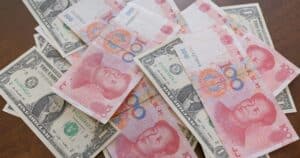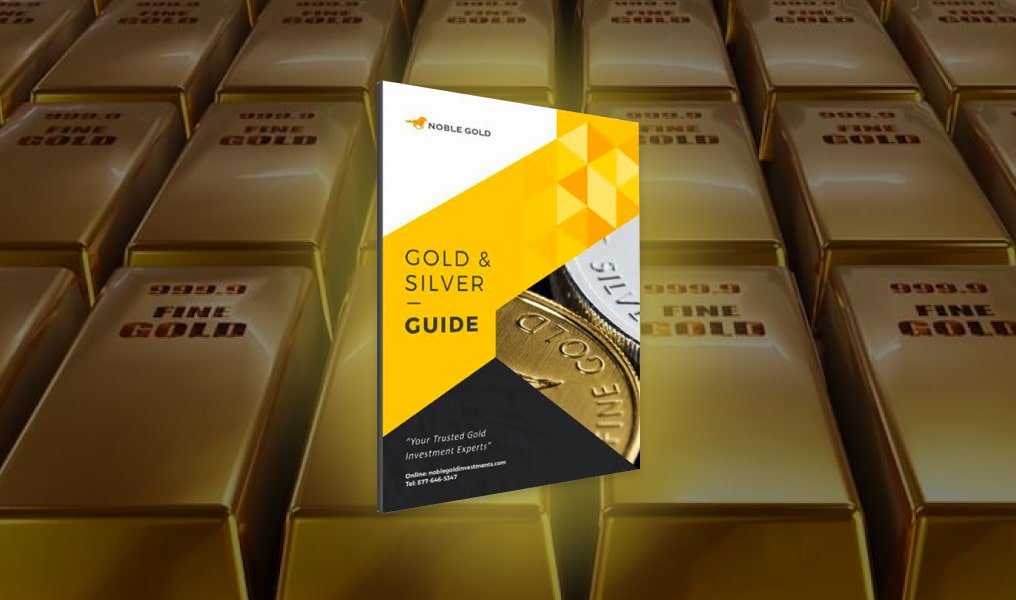Trade wars have become a growing concern for investors as they can significantly impact the global economy and individual investment portfolios. When countries impose tariffs and punitive measures on other countries’ economic goods, this disrupts international trade, leading to market volatility and currency fluctuations. This uncertainty poses a challenge for investors as they need to adjust their strategies to protect their assets and minimize potential losses from these geopolitical tensions.
One of the most important aspects of hedging one’s portfolio during a trade conflict is understanding how to evaluate and rebalance investments to take a balanced and diversified approach. By closely monitoring market trends and global economic developments, investors can identify potential risks and opportunities arising from trade war scenarios.
Understanding Trade Wars
Trade wars occur when countries impose tariffs or restrictions on imports from other countries to protect their industry. These measures often lead to a cycle of retaliation that can escalate and disrupt global trade.
Impact On The Global Economy
The impact of trade wars on the global economy can be far-reaching and unpredictable, as they can lead to fluctuations in markets, prices, and currency values. Some potential consequences of trade wars include:
- Reduced economic growth: Trade wars can lead to reduced trade between countries and lower GDP growth rates.
- Industry disruption: Tariffs can disrupt supply chains and increase the cost of doing business, which can lead to job losses and declines in production.
- Inflation: As the cost of imports increases due to tariffs, consumers may face higher prices for goods and services, leading to inflation.
- Geopolitical tensions: Trade disputes can strain diplomatic relations and contribute to instability in regions where countries rely on trade for growth and development.
A Modern Trade War
The trade war between the U.S. and China began in 2018 when the U.S. imposed tariffs on Chinese goods, prompting China to retaliate. Over the course of two years, both countries introduced a series of escalating tariffs, causing significant disruption to global markets. The EU, Russia, and other countries were also affected as protectionist policies threatened the global free trade system.
Key events during the trade war between the U.S. and China include:
- In 2018, the U.S. imposed tariffs on $34 billion of Chinese imports, citing intellectual property theft and technology transfer.
- In retaliation, China imposed tariffs on $ 34 billion worth of U.S. imports, targeting agricultural products, cars, and chemicals.
- In 2019, the U.S. increased tariffs on an additional $200 billion of Chinese imports. In response, China increased tariffs on $60 billion of U.S. goods.
- In December 2019, the U.S. and China agreed on a “phase one” trade agreement, reducing some tariffs and increasing Chinese purchases of U.S. agricultural products.
The U.S.-China trade war has highlighted the challenges and complexity of protectionism and its potential negative impact on the global economy. It’s a reminder of the importance of international cooperation and the need for a balanced trade policy that promotes growth and stability.
Impact Of Trade Wars On Different Sectors
Trade wars affect different sectors of the economy and lead to changes in economic growth, consumer behavior, and business operations. By understanding the impact of trade wars on different sectors, investors can make more informed decisions to protect their investments in these areas.
Consumer Goods And Retail
Trade wars often lead to increased tariffs and trade barriers. This disruption to the movement of goods and services can have several consequences for the consumer goods and retail sectors:
- Increased prices: The introduction of tariffs increases the cost of imported goods. As a result, consumers may have to pay higher prices for products, which can decrease spending and demand.
- Shifts in supply chains: Companies may need to reassess their supply chains to avoid tariffs or trade barriers. This adjustment can lead to operational inefficiencies and additional costs.
- Fluctuations in product availability: If trade wars disrupt trade flows, consumers may have less choice and limited access to certain goods.
Technology And Intellectual Property
The technology sector is significantly affected by trade wars, particularly due to intellectual property issues. The main consequences for this sector include:
- Protectionism in technology development: Trade wars can lead countries to focus more on domestic technology production. This protectionist mindset can limit the exchange of technology and stifle global innovation.
- Increased cybersecurity risks: During trade wars, there may be an increase in cyberattacks on intellectual property or sensitive information, posing a threat to companies in the technology sector.
- Supply chain disruptions: Technology companies rely on global supply chains to source components, assemble products, and distribute goods. Trade wars can lead to unforeseen disruptions and higher costs for these companies.
Investment Strategies Amidst Trade Conflicts
Employing investment strategies like diversifying across asset classes and rebalancing portfolios can help protect investments during trade conflict. By adjusting asset allocations and regularly reviewing portfolio performance, investors can mitigate risks and maintain their long-term investment objectives.
Diversification Across Asset Classes
Diversifying across different asset classes is an important investment strategy to protect your portfolio amid trade conflicts. By spreading investments across different asset types, such as stocks, bonds, commodities, currencies, and real estate, investors can reduce their exposure to certain asset classes.
In times of trade wars, for example, shares in companies that are heavily involved in international trade could suffer. However, investing in other assets, such as bonds, can provide a safety net as they generally perform well when share prices fall. Additionally, including commodities, particularly gold, in a portfolio can hedge against volatility as it’s often considered a safe haven in turbulent times.
A suggested asset percentage allocation is:
| Asset Class | Percentage |
| Stocks | 40% |
| Bonds | 40% |
| Commodities | 10% |
| Currencies | 5% |
| Real Estate | 5% |
Rebalancing Portfolios
Another investment strategy amid trade conflicts is portfolio rebalancing, i.e., adjusting the weighting of different asset classes within a portfolio in response to market conditions and individual risk tolerance. This strategy ensures that investors maintain their desired level of risk and adhere to their long-term investment objectives.
During a trade war, tariffs and restrictions may more directly affect certain industries or sectors. Therefore, investors should consider rebalancing their portfolios by shifting the focus to less affected sectors or industries. Rebalancing also involves regularly evaluating the performance of your portfolio and making adjustments to maintain the desired level of diversification.
Protective Investment Vehicles
During economic uncertainty or trade wars, various commodities can serve as a hedge for your investments. Remember that investing in these assets can involve risks, so it’s important to research the respective commodities market before investing your money.
Hedging With Gold And Commodities
Gold is often considered a safe investment due to its historical stability and intrinsic value. Investors can invest a portion of their portfolio in gold or other commodities such as silver and oil to mitigate the effects of market volatility. This can be done in several ways, including:
- Buying physical gold or commodities (e.g., bars, coins)
- Investing in precious metals directly within a tax-advantaged Precious Metals IRA
- Investing in exchange-traded funds (ETFs) that track the prices of commodities
Using Put Options For Protection
A put option is a financial contract that gives the option holder the right, but not the obligation, to sell an underlying asset at a predetermined price (the “strike price”) before a specified expiration date. By purchasing put options on the stocks in their portfolio, investors can essentially “insure” their holdings against potential price losses.
For example, if an investor owns shares in company XYZ and believes that the ongoing trade war will negatively impact XYZ’s stock price, they can buy put options on XYZ. If the share price falls, the value of the put options increases and offsets the losses from the share position.
However, it’s important to note that a premium must be paid to buy put options, which can reduce the return if the share price doesn’t fall as expected. Therefore, investors need to carefully weigh the potential protective benefits against the cost of put options when making this decision.
Seeking Professional Investment Advice
While trade wars and economic uncertainty can be challenging for investors, consulting a financial expert and applying appropriate investment strategies tailored to individual needs can help weather these turbulent times and protect and grow investments.
When To Consult A Financial Professional
Financial professionals have the necessary expertise to analyze market trends, understand the potential impact of trade wars, and suggest appropriate strategies to minimize risk. They’re essential if an investor’s financial situation changes significantly, feels overwhelmed by market volatility, or struggles to make investment decisions that align with their long-term goals.
A financial expert will consider inflation, interest rates, and the general economic situation to guide the investor toward an appropriate investment strategy.
Investing In Uncertain Economic Times
During trade wars and economic uncertainty, there are several strategies that financial professionals can recommend to help investors manage their portfolios effectively:
- Diversification: Spreading investments across different asset classes, sectors, and geographic regions can help protect against potential shocks in certain market segments due to trade wars or other global events.
- Rebalancing: Regularly evaluate your investments to ensure they align with your risk tolerance and financial goals. If certain assets have performed exceptionally well or poorly, rebalance your portfolio to ensure adequate diversification.
- Focus on Total Return: In volatile markets, investors should prioritize total return (including income and capital appreciation) rather than focusing solely on capital gains.
- Investing in Inflation-Protected Assets: Trade wars could lead to higher inflation as import tariffs increase the price of goods and services. Investors can explore options such as Treasury Inflation-Protected Securities (TIPS) or inflation-linked bonds to hedge their investments against rising prices.
It should be noted that the strategies listed above are not exhaustive and shouldn’t be considered specific advice. Investors should consult a financial professional to discuss their situation and risk tolerance.
Protect Your Future Wealth With Precious Metals
If you’re searching for alternative investment opportunities that may not be impacted by global economic events like trade wars, gold, silver, and other precious metals are an excellent hedge against inflation and other financial threats the market may throw at you. With Noble Gold Investments, you can buy gold and silver to store at home or buy gold in a tax-advantaged IRA to save for retirement.
Contact us to get started today. Give us a call at (877) 646-5347, or click here to open your free precious metals IRA account.







